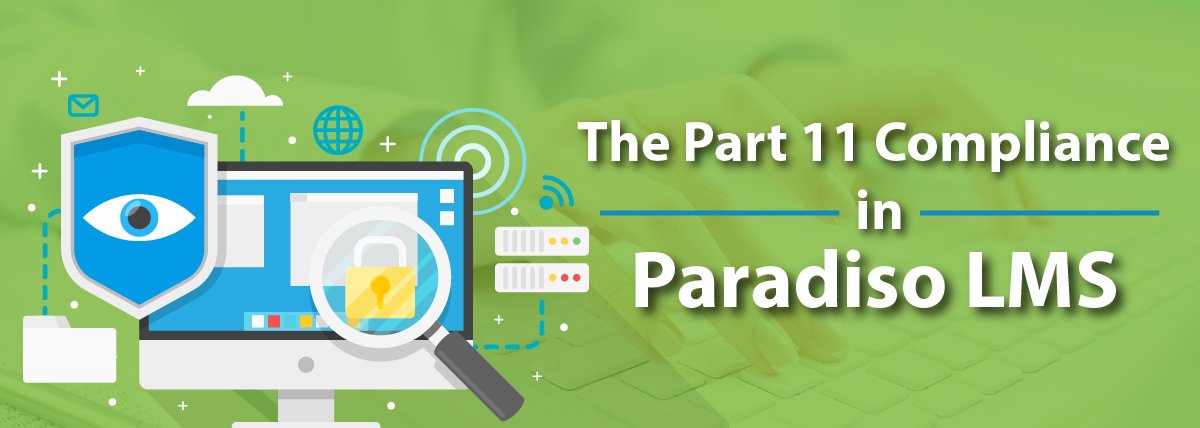Any Learning Management System needs to be compliant with law regulations that, among other things, help to ensure the tracking capability of the events developed inside the platform, a good storage capacity or a digital signing request. This is what the final standard 21 CFR Part 11 compliance talks about when it comes to allowing the best possible use of electronic technology.
The part 11 of the title 21 of the Code of Federal Regulations, or Part 11 as commonly called, sets the terms in which electronic records and electronic signatures are considered reliable, safe and comparable to physical records.
In order to comply with those regulations, the software developer must ensure that it’s features have a safe and reliable management of all registered information and the right storage of activities and processes. To have that covered, LMS’s must come with these particular features:
Auditing: Every change made to the platform needs to be tracked in the database. Plus the information related to the kind of change made and the time. These changes include creation, updating, and deletion of sensitive data.
Electronic Signatures: An E-signature is needed before every important operation on the platform. The feature asks for an ID, password and a reason for the update. This makes a very complete way of keeping control of your E-Learning System.
Electronic Storage Capability: This must be a constant recording feature for proactive compliance reporting. A good system of electronic storage allows the inspection process of an LMS to be effective and efficient.
Version Control: Electronic training records with constant updates with the exact version of each course taken.
Reports Generator: The audited data requires to be shown as reports like the Audit Trail and Audit Trail User Action. This gives users the possibility to access the audited information in formats like PDF, Excel, HTML or CSV.
Secure Hosting: The developer must guarantee that a secure and reliable hosting environment is set for the platform.
















